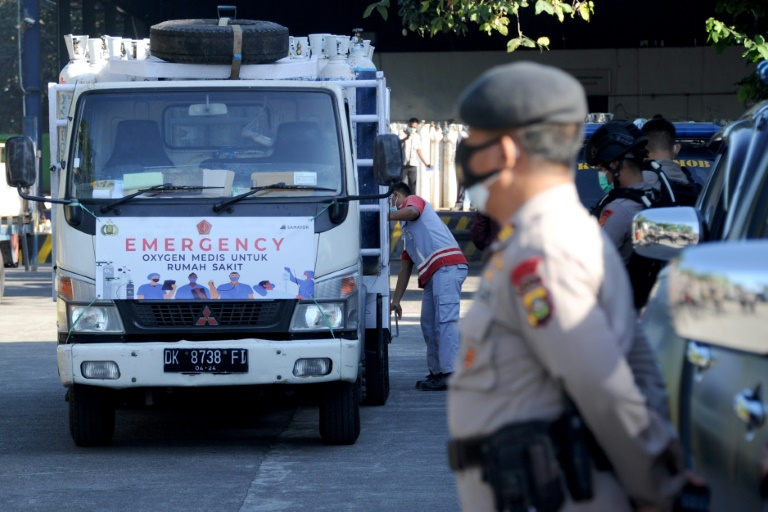Small shops, streetside restaurants and some shopping malls reopened in coronavirus-battered Indonesia on Monday after the government loosened a shutdown despite warnings it could unleash another Covid-19 wave.
President Joko Widodo said Sunday that a partial lockdown imposed in early July would continue until August 2 even as the highly infectious Delta variant tears across the vast archipelago nation, which has overtaken India and Brazil to become the global pandemic epicentre.
But restrictions on many small businesses, including traditional markets and ubiquitous open-air eateries known as warungs, were loosened even in the worst-hit areas.
“We’re opening for dining in again,” Syaifurrohman, a seafood eatery owner who like many Indonesians goes by one name, told AFP.
“I hope Jakarta recovers quickly because this busy place is where we make a living.”
Shopping malls and mosques in less affected parts of the Muslim majority nation also got the green light to open their doors to limited crowds and shorter hours.
Offices were still under shutdown orders, although there have been widespread reports of employers flouting earlier lockdown rules.
– Papua eyes lockdown –
Tens of millions live hand to mouth in the nation of about 270 million, making the strict lockdowns seen in some countries next to impossible.
But Widodo’s government has been widely criticised over its handling of the pandemic and policies that critics say prioritised Southeast Asia’s largest economy over public health.
The government announcement Sunday came just days after Indonesia saw its 24-hour death toll hit a record 1,566, and as the World Health Organization called on the country to impose tighter curbs.
Widodo has pointed to falling daily infection and hospital occupancy rates as justification for the easing.
Official case rates are down, but testing rates have also declined and the number of positive results remains high — suggesting the virus was still spreading quickly.
The Delta variant has been detected in about a dozen regions outside hard-hit Jakarta, densely populated Java and Bali, where hospitals have been jammed with Covid patients.
Authorities on the holiday island warned that oxygen supplies were running low.
Impoverished Papua — wracked by decades of fighting between government forces and independence-seeking rebels — also sounded the alarm as its under-developed healthcare system reached breaking point.
The restive region, next to independent Papua New Guinea, said it was considering locking down its sea, air and land borders from August.
Indonesia’s vaccination levels remain far below the government’s one-million-a-day target for July and only about six percent of the population has been fully inoculated.
The country has reported more than 3.1 million cases and 83,000 deaths since the pandemic began, but those official figures are widely believed to be a severe undercount due to low testing and tracing rates.











